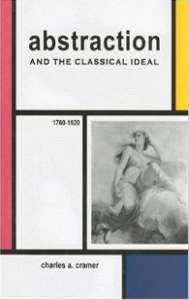
Charles A. Cramer
Hardback
August 2006 • ISBN 978-1611492873 • $82.00
Order Online
Series
Studies in Seventeenth- and Eighteenth-Century Art and Culture
This study traces an important but largely overlooked conception of abstraction in art form from its roots in eighteenth-century empirical epistemology to its application in the pursuit of ideal form from Joshua Reynolds to Piet Mondrian. Theorized by Enlightenment philosophy as a means of discovering ideal essence by purging natural form of its accidental and contingent qualities, abstraction was a major focus of philosophical, scientific, and aesthetic discourse for more than one hundred fifty years, serving as the nucleus of fundamental debates about the philosophy of mind, the relationship between the Ancients and the Moderns, the nature of human racial and functional variety, the nature of God’s creative ideas, the use of brushwork in painting, the validity of abstraction in art, and the visual appearance of ideal truth and beauty. Through a close examination of these debates, this study significantly revises and enlarges our understanding of both abstraction and idealization in art.
About the Author
Charles A. Cramer is Associate Professor of Art History at Suffolk University.

